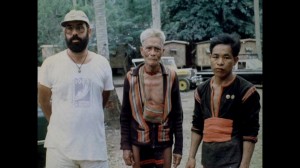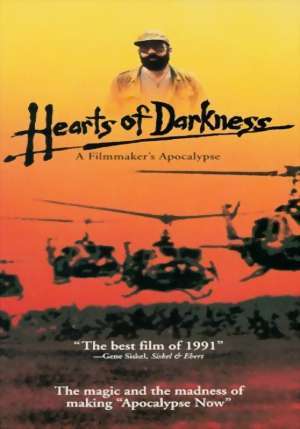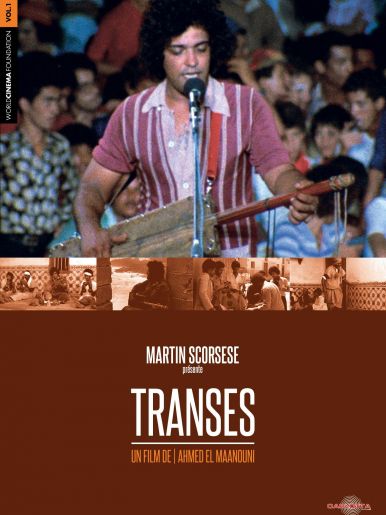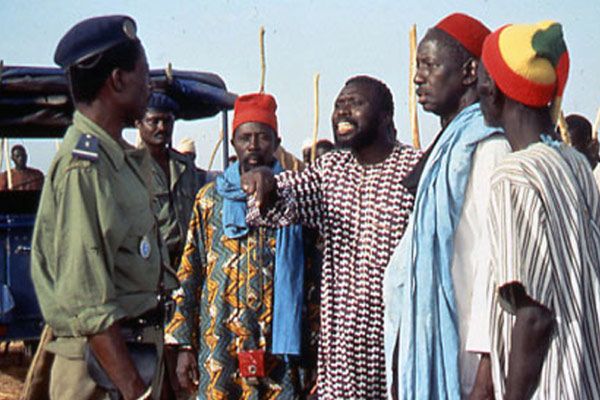From the Chicago Reader (January 24, 1992). — J.R.

HEARTS OF DARKNESS: A FILMMAKER’S APOCALYPSE
** (Worth seeing)
Directed by Fax Bahr, George Hickenlooper, and Eleanor Coppola
Written by Bahr and Hickenlooper.

A little over a decade ago in an English film magazine I made a rather foolish prediction: “Perhaps by the 90s a sufficient time gap will have elapsed to allow [American] filmmakers to approach the subject of Vietnam in a more detached, balanced, and analytical manner.” Cockeyed optimist that I was, I reasoned that some historical distance would allow certain blank spots in our knowledge and understanding of Vietnam to be filled — not doused in amber and framed in gold while remaining blank spots. I took to heart Ernest Hemingway’s famous declaration in a Paris Review interview: “If a writer omits something because he does not know it then there is a hole in the story.” I reasoned that the gaping holes in our Vietnam cover story would finally reduce that protective garment to tatters and permit some light to shine through.
Little did I know that the holes themselves would come to be defined as points of illumination — a bit like George Bush’s “thousand points of light” — and would decorate our consciousness like Christmas trees. Read more
From “Festival Journal,” The Soho News, October 13, 1981. Transes recently became available on a French DVD released by the World Cinema Foundation. –- J.R.

October 1: The best new movie I see all week is a particular favorite. I’ve been told, of Susan Sontag’s. I share much of her enthusiasm for the French/Moroccan coproduction Transes, directed by Ahmed El Maanouni, if only because this movie has some of the best sound-mixing and most infectious music I’ve heard in ages. Both of these are central aspects of its subject, the North African tour of an indigenous pop group called Nasa El Ghiwane, which comes from the Casablanca ghetto and sings about extreme poverty – a genuinely subversive male quintet whose popularity has spread like wildfire since the 60s. Originally banned from Moroccan radio and TV, they can automatically command an audience of 20,000 wherever they play in Algeria, Morocco, or Tunisia.
The movie starts wonderfully by establishing direct continuities between the music and the Casablanca ghetto (the latter traversed from a car window) -– a sequence that was almost cut by the local government until the powerful Nasa El Ghiwane group intervened; and the transitions throughout between both physical and aural subjects are handled with a remarkable ear and eye. Read more
From the Chicago Reader (April 22, 1994). — J.R.

*** GUELWAAR
(A must-see)
Directed and written by Ousmane Sembène
With Omar Seck, Mame Ndoumbe Diop, Thierno Ndiaye, Ndiawar Diop, Moustapha Diop, Marie-Augustine Diatta, Samba Wane, and Joseph Sane.

We like to think that the essential works of any art form are readily available to everyone; but when it comes to film we still aren’t within hailing distance of that goal, even if we agree to the debatable proposition that a film’s transfer to video equals its availability. The canons of film history taught in film departments across the country are based almost entirely on the titles that film, video, and laser disc companies choose to place or keep on the market, which is all that most film professors have seen in the first place. And now that 16-millimeter film distribution is already on its last legs, the history and breadth of the medium, even for most film students, is quickly being reduced to what can be found at local video stores.
Among the many key items that can’t be found there are virtually all the major African films, including the seven features and four shorts of Senegalese writer-director Ousmane Sembène, by most accounts the greatest African filmmaker. Read more





